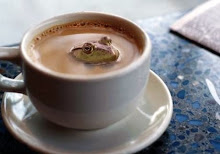Madness, craziness, lunacy, insanity, seem to be concepts that are romanticized in our culture. Many of the famous artists, writers, actors, have or had illnesses.
Pablo Picasso had Schizophrenia, Vincent Van Gogh had Bipolar Disorder, and Claude Monet had Clinical Depression. Writer Earnest Hemingway had Bipolar Disorder, Herman Hesse had Clinical Depression, Edgar Allen Poe had Clinical Depression, Jack Kerouac had Clinical Depression, Kurt Vonnegut had Clinical Depression all along with a litany of others who most likely influenced our lives and our culture but also had a mental illness.
According to 2009 report by CNN there have been more than 20 studies that suggest an increased rate of bipolar and depressive illnesses in creative individuals.
Experts say mental illness does not necessarily cause creativity, nor does creativity necessarily contribute to mental illness however certain personality types may contribute to mental illness and art and creativity.
According to Kay Redfield Jamison, professor of psychiatry at Johns Hopkins University and author of the "An Unquiet Mind," a memoir of living with bipolar disorder (and Night Falls Fast: Understanding Suicide), "Unquestionably, I think a major link is to the underlying temperaments of both bipolar illness and depression, of reflectiveness and so forth".Accordin to Mihaly Csikszentmihalyi, professor of psychology and management at Claremont Graduate University in Claremont, California, creative people in the arts must develop a deep sensitivity to their surroundings -- colors, sounds, and emotions. Such hypersensitivity can lead people to worry about things that other people don't worry about as much, he said, and this can lead to depression.
"The arts are more dangerous [than other professions] because they require sensitivity to a large extent," said Csikszentmihalyi. "If you go too far you can pay a price -- you can be too sensitive to live in this world."
This series of thought has always made sense to me. Simply put invidiuals with mental illness are more likely to have a perspective that those without mental illness do not.
While mental illness, psychology and behavior can be quite fascinating I think it is also important to acknowledge that for the most part it is no fun. While some enjoy certain manic highs or interactions with delusions, for the most part it is a difficult life.
I know that any of the patients I work with on the psychiatric unit at which I am employed, would give up their mental illness in a heartbeat. Then there are those who are so ill that they have little to no insight to their illness and do not know that their perceptions are not real. These particular folks will never work, will most likely never be able to have functioning relationships and will be pushed from hospital to hospital until there is a place where they can stay indefinitely.
Individuals with Schizophrenia Speak
Schizophrenia: Heather
(Heather shows disordered unorganized thoughts in her conversations. The odd facial expressions she displays when she speaks is a side effect of the antipsychotic medication she is on. While some antipsychotic meds do not produce such side effects, not all schizophrenics response well to such medication.)
Bipolar Disorder: An Interview with Megan
In this interview Megan talks about Hypomania. Hypomania is a less severe form of mania. It's a period of time that works it's way up to mania. Many individuals actually enjoy Hypomania as they often feel very good. They are more confident and feel productive. Sometimes Hypomania evolves into depression instead of mania.
When people are experiencing Hypomania or even Mania at times they do not believe that anything is wrong or they wish to prolong the feeling.
Webmd used examples from individuals who have experienced Hypomania and Mania and desribed the experiences below.
Hypomania: At first when I'm high, it's tremendous ... ideas are fast ... like shooting stars you follow until brighter ones appear... . All shyness disappears, the right words and gestures are suddenly there ... uninteresting people, things become intensely interesting. Sensuality is pervasive, the desire to seduce and be seduced is irresistible. Your marrow is infused with unbelievable feelings of ease, power, well-being, omnipotence, euphoria ... you can do anything ... but somewhere this changes.
Mania: The fast ideas start coming too fast and there are far too many ... overwhelming confusion replaces clarity ... you stop keeping up with it … memory goes. Infectious humor ceases to amuse. Your friends become frightened ... everything is now against the grain ... you are irritable, angry, frightened, uncontrollable, and trapped.
When someone is experiencing either of these they may have pressured speech where they speak very fast. They may present very grandiose and have racing thoughts. They may feel restless and have an extrodinary amount of energy and moods may switch suddendly from being joyous to irritble and hostile.Depression: Differenty Types
(i noticed "double depression" has not been noted here)
I hope these videos are helpful however to be honest I wish I was able to come across better ones. However, I know that even if I did there is so much to these illnesses that it would really take each of you to do your own research and perhaps to meet with individuals who have these illnesses to get a glimpse into the world of mental illness.
The point of this post is to emphasize how insulting it is that mental illness is so often romantcized in our culture. Some actually praise mental illnesses as an artistic glory and some run with the stereotype that those with mental illnesses are monsterous individuals. We see stories of haunted asylums in films and literature where the illusion of mysticism and horror comes through rather than empathy (I do not mean pity) for the individual.
I we are to give our attention to mental illness at all I believe it should be done in a manner in which we attempt to understand, empathize, respect and destigmatize those who battle their obstacles every day.

No comments:
Post a Comment